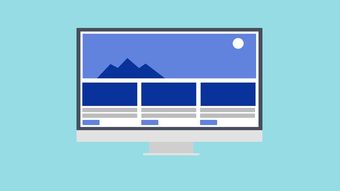
The internet is an expansive universe brimming with content, where every website vies for user attention and better visibility on search engine result pages (SERPs). A critical aspect that determines this visibility is the practice known as Search Engine Optimization (SEO), and at its core lies on-page SEO. On-page SEO encompasses a multitude of strategies applied directly within the website to improve its ranking and relevancy. It is the cornerstOne of web page optimization and here's why:
Firstly, on-page SEO involves the optimization of various Elements that directly impact how search engines crawl and index a website. This includes the use of appropriate keywords, meta tags, title tags, headings, and alt text for images. By strategically placing these elements, websites can communicate their relevance to search engines more effectively. For instance, incorporating targeted keywords into the title tag and meta description can help search engines understand what the webpage is about, improving its chances of appearing for relevant queries.
Secondly, high-quality content is paramount to on-page SEO. Content should be not only informative and engaging but also optimized with keywords without overstuffing them, a practice known as keyword stuffing which can be penalized by search engines. The text should flow naturally while adhering to the topic, providing valuable information to users that satisfies their search intent.
Furthermore, website structure plays a significant role in on-page SEO. A well-structured website with a clear hierarchy allows search engine bots to navigate and index the site efficiently. This includes having a logical URL structure, using breadcrumb navigation, and ensuring fast page load times. Websites that are easy to crawl and quick to load will be favored both by users and search engines.
Another key aspect is the mobile-friendliness of a website. With the surge in mobile internet usage, it is essential that websites perform well on mobile devices. Google's Mobile-First Indexing prioritizes the mobile version of websites for indexing and ranking. Therefore, having a responsive design that ensures a smooth experience across different devices is crucial for on-page SEO.
Lastly, the inclusion of internal links and the reduction of external outbound links can positively affect on-page SEO. Internal linking helps distribute authority throughout the site, aiding users in navigating and increasing the time they spend on the site. Reducing the number of outbound links prevents the leakage of page authority to other domains, ensuring that the website retains its value and relevance.
In conclusion, on-page SEO is indeed the most important content of web page optimization because it directly influences how search engines perceive and rank a website. By focusing on keyword optimization, quality content, website structure, mobile-friendliness, and strategic internal and external linking, websites can significantly enhance their visibility and attract more organic traffic. Mastering on-page SEO is a continuous process that requires vigilance, creativity, and adaptability to the ever-evolving algorithms of search engines.
评论列表 (0条)